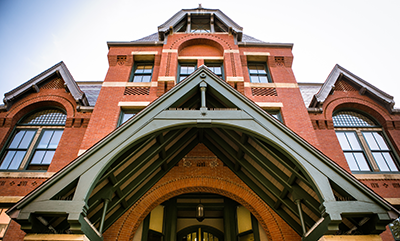History as a Determinant of Health.
 The social, economic, and environmental conditions that shape the health of populations are not just the products of contemporary circumstance; they are part of an historical continuum. The effect that historical factors like war, economics, intellectual movements, and mass migration can have on the long-term health of populations argues for a consideration of the past itself as a determinant of health. With this in mind, and in keeping with the aspirations of SPH Narrative Month to “represent and reflect on the structures that affect health,” a Note on how the past influences the present, and how an understanding of history can help us create a healthier world.
The social, economic, and environmental conditions that shape the health of populations are not just the products of contemporary circumstance; they are part of an historical continuum. The effect that historical factors like war, economics, intellectual movements, and mass migration can have on the long-term health of populations argues for a consideration of the past itself as a determinant of health. With this in mind, and in keeping with the aspirations of SPH Narrative Month to “represent and reflect on the structures that affect health,” a Note on how the past influences the present, and how an understanding of history can help us create a healthier world.
Wi
嗨
It is not surprising that history also teaches us how health is shaped on a global scale. Last May marked the 100th anniversary of the Sykes-Picot Agreement, a pact which led to innumerable hardships in the Middle East, creating the conditions for much of the region’s current unrest. Sykes-Picot was a secret post-World War I agreement between Great Britain and France to divide the Arab lands of the defeated Ottoman Empire into “spheres of influence” to be shared by the two countries. Notably, the agreement established the rough outlines of what would become Syria and Iraq (Figure 1).

Sykes-Picot Agreement. Encyclopædia Britannica Web site. https://www.britannica.com/event/Sykes-Picot-Agreement Accessed February 22, 2017.
Th
Fi
At SPH, we engage with history in a number of ways. The work of Professor Michael Grodin—in particular his study of Jewish medical resistance during the Holocaust—teaches us about public health’s response to perhaps the darkest chapter in our history, and how we might think about questions of religion and morality under the most harrowing of circumstances. Professor David Jones has done much to illuminate the history of poverty, through his exploration of the legacy of Robert Kennedy and the social determinants of health in the Mississippi Delta. Through our Racial Justice Talking Circles, we are empowered to consider the historical factors that shape our own privilege, working towards a more nuanced grasp of the present through a better understanding of the past. This speaks to the responsibility of public health to bear witness, not only by acknowledging past events, but by communicating how our history informs the present moment in immediate, ever-unfolding ways.
I hope everyone has a terrific week. Until next week.
Warm regards,
Sandro
Sandro Galea, MD, DrPH
Dean and Robert A Knox Professor, Boston University School of Public Health
Twitter: @sandrogalea
Acknowledgement: I am grateful to Eric DelGizzo for his contributions to this Dean’s Note.
Previous Dean’s Notes are archived at: /sph/tag/deans-note/
Comments & Discussion
Boston University moderates comments to facilitate an informed, substantive, civil conversation. Abusive, profane, self-promotional, misleading, incoherent or off-topic comments will be rejected. Moderators are staffed during regular business hours (EST) and can only accept comments written in English. Statistics or facts must include a citation or a link to the citation.